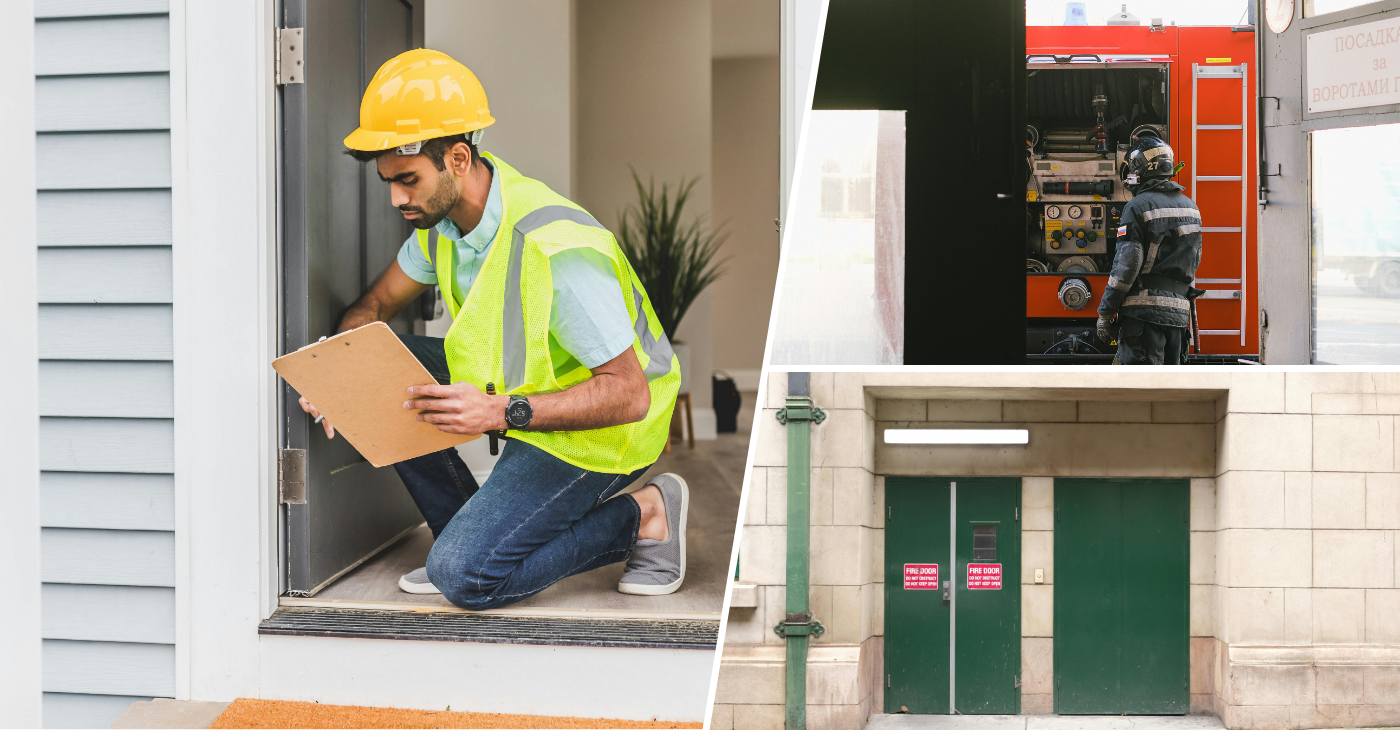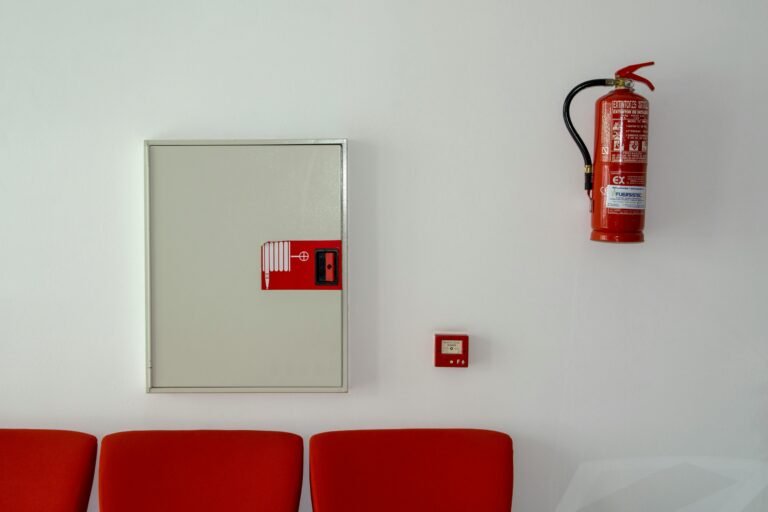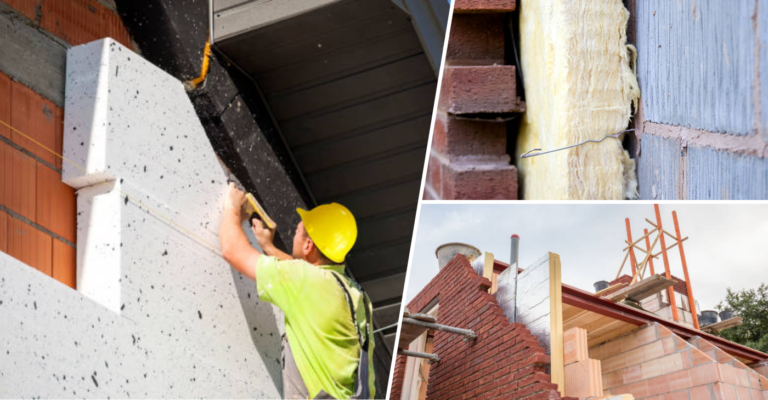Why fire door inspection certification is essential for safety professionals?
In the realm of building safety, few elements are as critical yet often overlooked as fire doors. These essential components are the first line of defense in preventing the spread of fire and smoke, providing occupants with precious time to evacuate and protecting property from extensive damage. However, the effectiveness of fire doors depends heavily on their proper installation, maintenance, and regular inspection. This is where fire door inspection certification becomes indispensable, particularly for safety professionals tasked with ensuring the highest standards of fire protection.
Understanding the role of fire doors
Before delving into the importance of fire door inspection certification, it’s essential to understand the critical role fire doors play in building safety. Fire doors are specifically designed to resist the spread of fire and smoke between different compartments of a building. They are a key element of passive fire protection, which aims to contain fires in defined areas, limit the spread of fire and smoke, and ensure that escape routes remain safe for building occupants.
Fire doors are made from fire-resistant materials and are equipped with components such as intumescent seals, which expand when exposed to heat, and self-closing devices that ensure the door remains shut during a fire. These doors must meet stringent regulatory standards and are subject to regular inspections to ensure they function correctly.
The importance of fire door inspections
While the design and installation of fire doors are crucial, their ongoing functionality is equally important. Fire doors are subject to wear and tear, and even minor damage or improper installation can significantly compromise their effectiveness. Regular inspections are essential to identify and rectify issues before they lead to catastrophic failures during an emergency.
Fire door inspections involve a thorough examination of the door and its components, including hinges, seals, and closing mechanisms. Inspectors look for signs of damage, improper installation, or tampering that could prevent the door from performing as intended. Given the life-saving role fire doors play, these inspections are not just a regulatory requirement but a moral obligation for those responsible for building safety. Read more
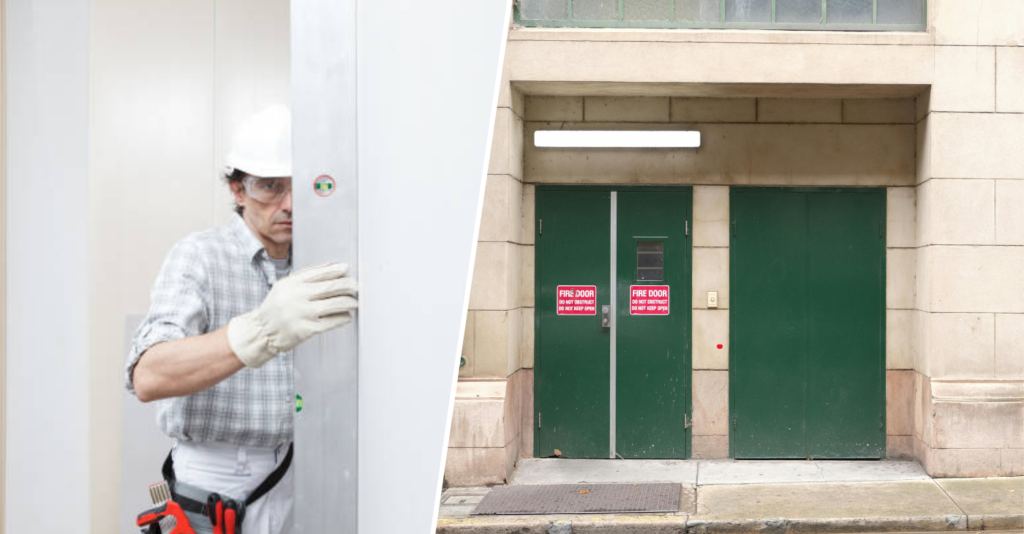
Why does fire door inspection certification matters?
Certification in fire door inspection is not merely a credential; it’s a validation of a professional’s knowledge, skills, and commitment to safety. Here’s why fire door inspection certification is essential for safety professionals:
1. Ensuring compliance with regulations
Fire door inspections are governed by stringent regulations, including those outlined in the Regulatory Reform (Fire Safety) Order 2005 in the UK. Certified inspectors are well-versed in these regulations and understand the legal requirements for fire doors in various building types. This ensures that inspections are conducted to the highest standards, reducing the risk of non-compliance and potential legal liabilities.
2. Enhancing professional credibility
For safety professionals, certification is a mark of credibility and expertise. It demonstrates to employers, clients, and regulatory bodies that the inspector has undergone rigorous training and possesses the necessary skills to perform accurate and reliable inspections. This credibility is crucial in a field where lives and property are at stake.
3. Improving fire safety outcomes
Certified inspectors bring a higher level of knowledge and attention to detail to their work. They are trained to identify even subtle issues that could compromise a fire door’s performance, such as gaps around the door frame, damaged seals, or improperly fitted hardware. By ensuring that fire doors are in optimal condition, certified inspectors play a direct role in improving fire safety outcomes.
4. Keeping up with industry advancements
The field of fire protection is constantly evolving, with new technologies, materials, and regulatory updates emerging regularly. Certification programs often include ongoing education requirements, ensuring that certified inspectors stay up-to-date with the latest industry advancements. This continuous learning is vital for maintaining the effectiveness of fire door inspections in an ever-changing landscape.
5. Providing peace of mind to building owners
Building owners and managers are responsible for the safety of their occupants, and they rely heavily on the expertise of safety professionals to fulfill this duty. Hiring a certified fire door inspector provides building owners with peace of mind, knowing that their fire doors have been inspected by a qualified professional who adheres to the highest standards.
6. bReducing risk of fire-related incidents
Faulty or poorly maintained fire doors can lead to devastating consequences in the event of a fire. Certified inspectors are trained to recognize potential risks and take corrective actions before they escalate into serious problems. By reducing the likelihood of fire-related incidents, certification contributes to a safer environment for everyone.
7. Enhancing career opportunities
For safety professionals, obtaining fire door inspection certification can open doors to new career opportunities. Certified inspectors are in high demand, particularly in industries where fire safety is a top priority, such as healthcare, education, and hospitality. Certification can lead to higher earning potential, increased job security, and opportunities for advancement within the field.
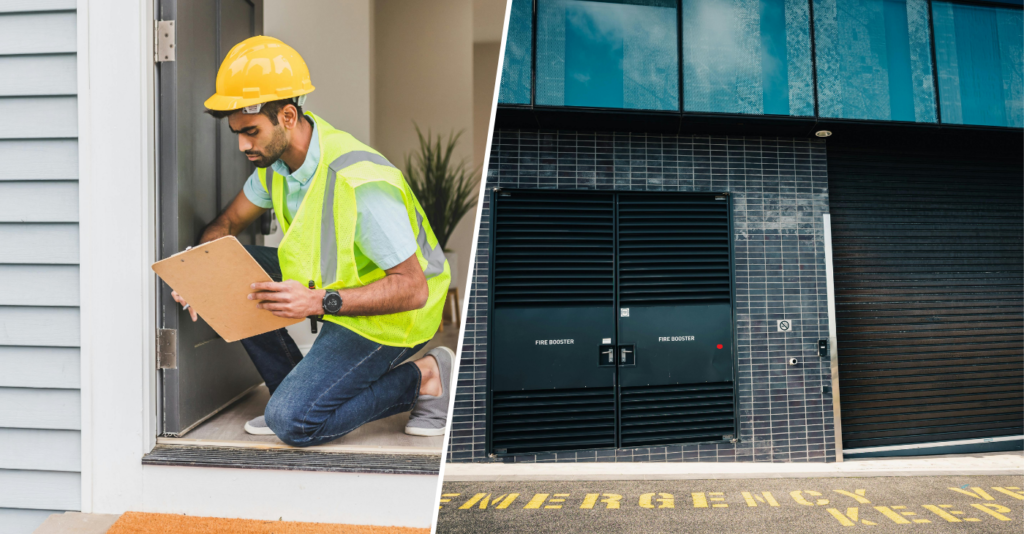
8. Supporting a culture of safety
Certification reinforces a culture of safety within organizations. When safety professionals are certified, they set an example for others to follow, promoting a commitment to fire safety throughout the organization. This culture of safety is essential for preventing accidents and ensuring that all aspects of fire protection are taken seriously.
9. Assisting in legal defense
In the unfortunate event of a fire, building owners and managers may face legal scrutiny over the adequacy of their fire safety measures. Certified fire door inspectors can provide valuable documentation and expert testimony to support a legal defense, demonstrating that all necessary precautions were taken to ensure fire doors were in proper working order.
10. Contributing to public safety
Ultimately, the goal of fire door inspection certification is to protect the public. By ensuring that fire doors are properly inspected and maintained, certified professionals contribute to the safety and well-being of building occupants. This is particularly important in public buildings, where large numbers of people may be at risk in the event of a fire.
11. The path to certification
For safety professionals interested in obtaining fire door inspection certification, the path typically involves a combination of formal training, hands-on experience, and assessment. Certification programs are offered by various organizations on the basis of their own set of requirements and standards.
- Training courses: Most certification programs begin with a training course that covers the fundamentals of fire door construction, installation, maintenance, and inspection. These courses often include both classroom instruction and practical exercises to give participants a comprehensive understanding of the subject.
- Hands-on experience: Practical experience is crucial for developing the skills needed to conduct thorough fire door inspections. Many certification programs require candidates to complete a certain number of supervised inspections as part of their training.
- Examination: After completing the required training and experience, candidates must pass an examination to demonstrate their knowledge and competency. This exam typically covers topics such as fire door regulations, inspection techniques, and common issues that can affect fire door performance.
- Ongoing education: To maintain certification, inspectors may be required to complete ongoing education or recertification courses. This ensures that certified professionals stay current with industry developments and continue to provide high-quality inspections.
Conclusion
Fire door inspection certification is an essential tool for ensuring the safety of building occupants and the integrity of fire protection systems. For safety professionals, certification provides the knowledge, skills, and credibility needed to conduct thorough and accurate inspections. It enhances career opportunities, supports compliance with regulations, and contributes to a culture of safety within organizations. Most importantly, it plays a vital role in protecting lives and property from the devastating effects of fire.
As the demands on fire safety continue to grow, the need for certified fire door inspectors will only increase. By obtaining certification, safety professionals can position themselves at the forefront of this critical field. They are making a meaningful impact on the safety and security of the built environment.

